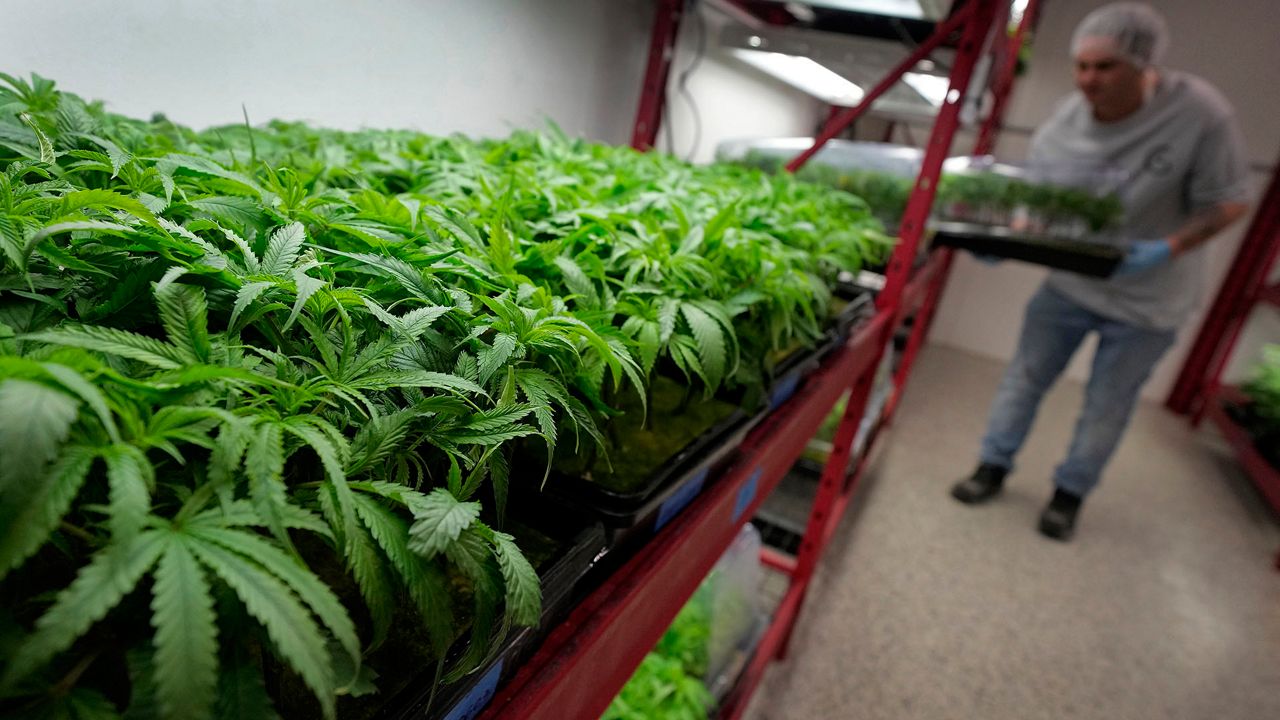The North Carolina Compassionate Care Act would legalize medical marijuana in the state. The bill has gotten further than earlier efforts to make prescription pot available in North Carolina.
The legislation, SB3, passed the Senate in late February. On Tuesday, it will get its first hearing in the North Carolina House. The bill lays out tight regulations to make medical marijuana legal for a list of conditions, including cancer, AIDS/HIV and post-traumatic stress disorder.
Powerful Republican Sens. Bill Rabon and Michael Lee and Democrat Sen. Paul Lowe are the primary sponsors on the bill in the Senate. They shepherded the same bill through the Senate to pass last year, but that effort stalled out in the House.
“It seems to me that the idea is gaining momentum and obviously there’s strong support in the Senate,” Rep. Jon Hardister, a Guilford County Republican and the majority whip in the House, said as the bill passed the Senate 36-10 in late February.
“In general, it seems like the attitude among members of the House is shifting more in favor of the legislation,” he said at the time.
But the bill’s fate in the House, where it’s been shelved for about three months, is not certain. It is scheduled for discussion in the House Health committee Tuesday morning, though the committee is not expected to take a vote.
The bill passed by the Senate lays out strict regulations for prescribing and dispensing medical marijuana.
A new Medical Cannabis Production Commission would be tasked with overseeing how the pot is grown, issuing no more than 10 licenses for producers. The process would be tracked closely from seed to sale.
The regulations in the bill spell out rules for sanitation, controlling the smell of the pot plants, quality control, pesticides, storage, transportation and essentially every other aspect of the operation.
Each licensed supplier would be allowed to open eight dispensaries, which means there could be up to 80 medical marijuana dispensaries in North Carolina. There are strict regulations for the dispensaries too, guiding where and when they can open and what they look like.
The legislation also has rules on designing packaging and advertising.
“Advertising shall be tasteful, respectful, and medically focused and shall not appeal to minors or contain cartoon-like figures or attempts at humor,” the Senate bill states.
Only patients with “debilitating medical conditions” would be allowed to get a medical marijuana prescription. The Senate bills defines those as:
- Cancer
- Epilepsy
- HIV/AIDS
- Amyotrophic lateral sclerosis (ALS)
- Crohn's disease
- Sickle cell anemia
- Parkinson's disease
- Post-traumatic stress disorder (subject to evidence that an applicant experienced one or more traumatic events)
- Multiple sclerosis
- Cachexia or wasting syndrome
- Severe or persistent nausea in a person who is not pregnant that is related to end of life or hospice care or who is bedridden or homebound because of a condition
- Terminal illness when the patient's remaining life expectancy is less than six months
- A condition resulting in the individual receiving hospice care
The bill would create a new Compassionate Use Advisory Board that could add more conditions to the approved list. The governor and General Assembly would be in charge of appointing members to the new board.



